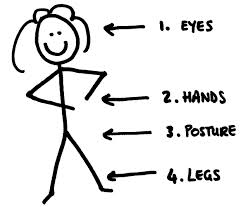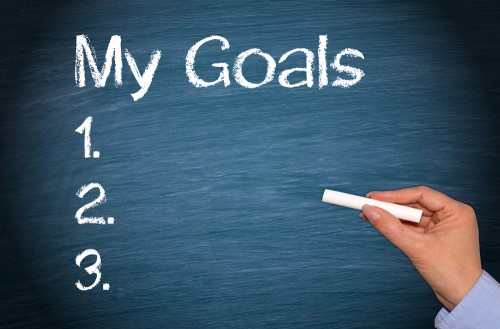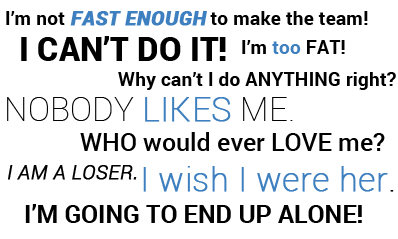student leadership
A Simple Phrase That Leaders Need To Know
Bonjour!
I don’t speak French. When it was time to take a foreign language in high school, Spanish seemed a more practical choice where I lived in California. However, it makes things a bit difficult, each Summer when I head to beautiful French-speaking Switzerland. Every year, I spend a month conducting leadership workshops and trainings at international leadership camps. Rough gig, huh? Everyone in my sessions speak English – so I get to teach in my native tongue. It’s when I head out into the real world that things get a little tricky. Even simple tasks such as buying an apple at the market or ordering a desert from a counter are an ordeal when you are unable to communicate. Sadly, after three years of annual visits, I still get through the day with pointing, pantomime, and finally asking “Do you speak English?”
There is one word that anyone who spends even a little time in Switzerland will learn: “Bonjour!”
That’s “Good Day!” in English.
 This formal greeting isn’t held in reserve for when you enter a store or sit down at the café. You’ll hear it from everyone you happen to pass. Men, women, children, young, old… Everyone. And they don’t just say it. They emphasize it with a sing-song happy voice accompanied by a big smile that makes you feel like they really mean it. This was quite strange at first, especially coming from a country where you can live in a place for a decade and still not know their neighbor’s first name. But you get used to it. And taking a cue from the country that Forbes Magazine lists as the #2 Happiest Place To Live, pretty soon you find yourself smiling and presenting your own happy “Bonjour!” to everyone that might cross your path. It’s amazing!
This formal greeting isn’t held in reserve for when you enter a store or sit down at the café. You’ll hear it from everyone you happen to pass. Men, women, children, young, old… Everyone. And they don’t just say it. They emphasize it with a sing-song happy voice accompanied by a big smile that makes you feel like they really mean it. This was quite strange at first, especially coming from a country where you can live in a place for a decade and still not know their neighbor’s first name. But you get used to it. And taking a cue from the country that Forbes Magazine lists as the #2 Happiest Place To Live, pretty soon you find yourself smiling and presenting your own happy “Bonjour!” to everyone that might cross your path. It’s amazing!
FAST FORWARD
I’ve been back in the US for only a few days now. Yesterday my girls and I headed to the beach. It was my first real interaction with the general public since my return. While my daughters soaked in the sun, I took a stroll along the shore. It wasn’t long till I saw another walker enjoying the coast – they were heading right toward me.
She was about my age casually walking, looking down at the sand as she did. I got ready to dispense with my best, “Bon Jour!” when it occurred to me where I was – or where I wasn’t. I decided that my greeting would likely earn me a weird look. Even worse, she might stop me and start speaking to me in French assuming that I knew the language. As the woman came closer I felt nervous and told myself to look down or away and act as though she didn’t exist. That’s what you’re supposed to do, right?
At the last second, I put a smile on my face and spoke a cheery “Good Day!”
The words felt weird coming out of my mouth. It’s the literal translation for Bonjour but who the heck says Good Day? Not me. Well, unless I’m imitating Fez from That 70’s Show with his offended “I said Good Day!!”
The woman, however, looked up smiled and said “Good Day!” right back. It was wonderful to see her transformation from someone who, like myself, was trying her best to not to make eye contact with a stranger into someone wearing the look of happiness and relief that someone else had broken the ice.
For the rest of my walk, as other people passed, I tried other greetings… “Hello” “Good morning” “Hi” Eventually settling back to my original “Good Day!”
Your ‘Hello!’ Could Change Somebody’s life.
I remember reading an article called Jumpers published in The New Yorker. One of the lives featured in this piece is of a man who jumped off San Francisco’s Golden Gate Bridge. Lonely and suffering from depression, he decided to end his own life. When officials found the note that he’d written and left on his bureau just a few hours earlier, they read the words: ‘I’m going to walk to the bridge. If one person smiles at me on the way, I will not jump.’
Not one person smiled.
I’m not saying someone committing on not committing suicide rests in your ability to smile at everyone on the street. However, a study out of the University of Chicago reports that at any given time at least one in five people (or about 60 million Americans) suffers from loneliness. I’d venture to guess that also means that one in five of your co-workers or one in five of your peers at school suffer from loneliness too. And a simple “hello” or “good day!” or even just a smile might be all someone you come in contact with needs to make it through the day.
“If you go looking for a friend, you’re going to find they’re scarce. If you go out to be a friend, you’ll find them everywhere.”
– Zig Ziglar
PS – Two notes I want to make: 1) I have signed up for a beginning French Language Class. When I return to Switzerland in 2015… I’m going to be a little less helpless than usual. 2) I passed the same woman on the way back on my walk. She said hello and pointed out a few seals that I hadn’t seen that were swimming right off the shore where we were standing. : )
What are your thoughts on the power of a hello and a smile? Have you ever had a day when that’s all you really needed from anyone? We want to know! Please share your ideas with us in the comments section below.
Leaders Are Listeners: 10 Easy Steps to Effective Listening Skills
When you think of people you like to hang out with, chances are, one of their qualities is that they are good listeners. In the age of technology, listening is becoming a lost art. It’s easy to let the pseudo-communication of social media and texting replace real conversations.
But, leaders are listeners.
When you listen, you learn. And it shows people that what they have to say is important. Think about it. The people who listen to us are the ones we move toward. When we are listened to, it validates us and helps us open our minds.
To enhance the human connection on your campus, show some leadership and follow these strategies to better listening.
1. Listen, listen, listen.
Just like you’d get yourself in the mental mode to play your favorite sport, take a test, or drive a car, it’s important that we mentally prepare ourselves to listen. Listening takes discipline – similar to training for your sport, studying for a test or learning to drive! So practice with intention.
2. Get rid of distractions.
 Put away your smartphone. Period.
Put away your smartphone. Period.
It’s a drag when someone feels like anything and everything else is more important than the person standing in front of them.
If you’re in a crowded, noisy place (such as a party or game) and it’s an important conversation, ask to move somewhere that’s quieter.
3. Don’t judge too early.
It’s easy to jump to conclusions before we have heard the whole story. Listening is also about waiting and patience (remember how it’s a discipline?) Don’t feel bad if you’re not in complete agreement with the other person. Leaders acknowledge and respect others’ views.
4. Ask questions.
When you ask questions, you convey genuine interest. It makes people feel good. Meaningful questions help a conversation take on more depth, and you create a rapport and trust with the other person. And – leadership is about gaining the trust of others.
5. Focus on key ideas – and what isn’t said out loud.
Instead of drifting off in boredom, listen for and extract the central idea.
This means to pay close attention to what is being said beneath the words. Focus on what’s NOT being said, too. Interpreting another person’s tone and feelings takes some observation and insight.
6. Don’t forget about body language.
Great listening skills go beyond what your ears are doing. Face the other person, maintain eye contact, and nod your head to demonstrate you’re fully committed to the conversation.
7. Suspend your own agenda.
Often, instead of listening to what’s actually being said to us, we mentally formulate our response. It’s hard, but focus on the speaker’s words and forget about your stuff. Sometimes, people don’t want advice. They just want a listening ear.
8. Empathize.
Consider the speaker’s point of view as if their concepts were your own. Empathy places you in the other person’s shoes and helps you gain a sense of their feelings and experiences. It’s not easy, but you’re practicing!
9. Acknowledge their point of view is valid.
People are different. We often don’t agree with others, but great listening includes acknowledgement. Their point of view is just as important and worthy as our own. Remember, everyone wants to feel important!
10. Paraphrase.
Repeat back the speaker is saying to make sure you’ve understood. This also demonstrates attentive listening. For example,
“So you’re telling me that you think my employee evaluation process is unfair?”
“Oh… so you hate the music we play at our dances?”
That’s it! Practice these listening techniques throughout your week and let me know how it goes.
Or, if I’ve missed one, please let me know in the comments section below. Thanks!
How To Set Goals | Quality #4: Make Your Goals Personal
“Don’t be trapped by dogma—which is living with the results of other people’s thinking. Don’t let the noise of other’s opinions drown out your own inner voice. And most important, have the courage to follow your heart and intuition. They somehow already know what you truly want to become. Everything else is secondary.” — Steve Jobs
Making your goal personal means you need to strive for something you believe in and is meaningful to you. You’ve got to own your goal. This detail is crucial to the success of your goal. Your goal should not reflect what your parents, teachers, or family want for you, unless you truly want that same thing.
Again, this is why it’s imperative to know yourself, your strengths/weaknesses, likes and dislikes. Trying to achieve a goal that is not meaningful to you will result in dissatisfaction, or even failure.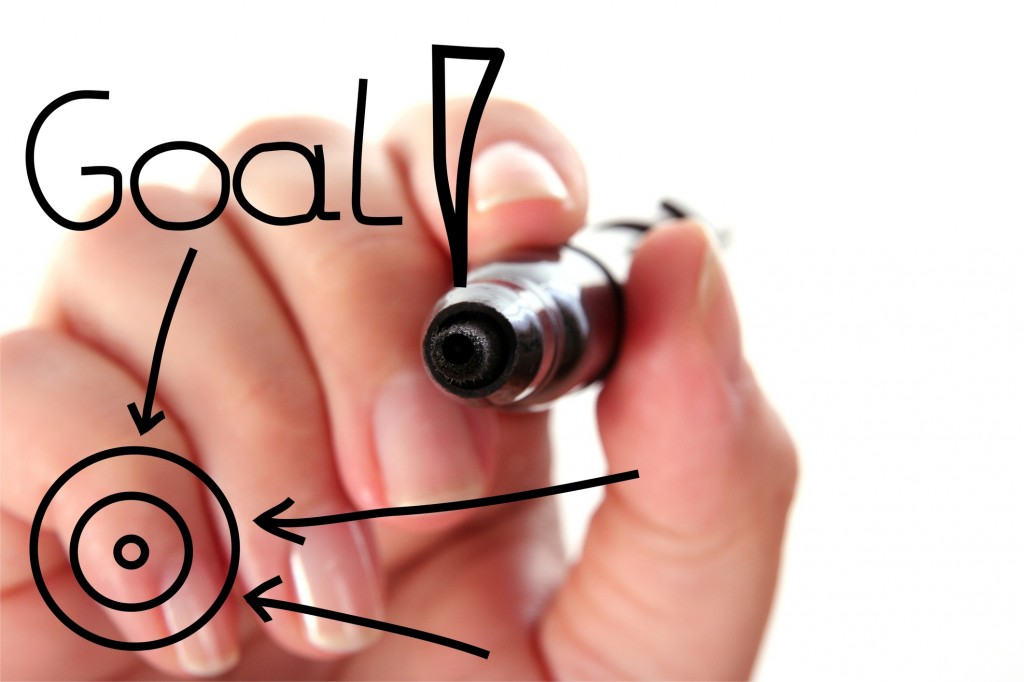
Allow me to share a story that illustrates this point.
Ashley was one of my closest friends from high school. She was a talented artist and amazing photographer. Not surprisingly, Ashley’s dream was to be a graphic designer. Her parents, however, had a different plan. They viewed such a career as unstable and impractical, and they steered her away from art. When Ashley went to college, she majored in accounting. As her friend, I knew this was one of the last careers that would interest her. She explained she was doing this to make her parents happy.
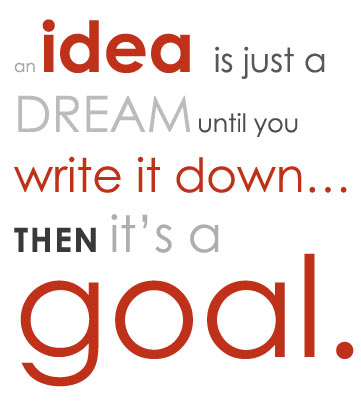 Three years into her accounting career, Ashley finally admitted to herself and her parents that she was miserable. She went back to school, this time as an art major. Ashley is now a successful artist, an “Imagineer” working at Disney Studios. You’ve probably not met Ashley, but you’ve seen some of her work in your favorite Disney movies.
Three years into her accounting career, Ashley finally admitted to herself and her parents that she was miserable. She went back to school, this time as an art major. Ashley is now a successful artist, an “Imagineer” working at Disney Studios. You’ve probably not met Ashley, but you’ve seen some of her work in your favorite Disney movies.
Had Ashley been true to herself, she could have set a goal that was personal and meaningful from the beginning, and saved money on college tuition, as well as spending three unsatisfactory years as an accountant
What is it that your really want? What goals are so important to you that you must succeed – no matter what? Maybe you know a great tip to help eager goal-setters reach their goals faster? Share your thoughts in the comment section below!
I look forward to a great goal-setting discussion!
How To Set Goals | Quality #2: Make Your Goals Specific
At a recent conference where I presented a goal setting workshop, I surveyed the audience for their goals. A young man, Lucas, raised his hand and said, “Yeah! My goal is to be rich!”
When I asked him how he was going to get rich he replied, “I don’t know. I just want to be rich!” Unless Lucas gets a more specific, he doesn’t have a goal.
There are so many ways that one can become rich. He could own a lucrative business, become a surgeon, inherit a chunk of money, or even win the lottery. In all these cases, being rich is an outcome from a goal rather than an actual goal.
If you’re a student, and your goal is “to do better in school” you’ll need to be a bit more specific since that can have so many meanings. There can be several reasons why you are not doing well. Do you have a certain class that needs attention? Are you having trouble focusing? Have you given it your best effort? Is it a social or discipline problem that should be the object of your goal?
Here are a few goals that might specifically state the situation:
-
“My goal is to study at least two hours every day!”
-
“My goal is to receive an A in Economics.”
-
“My goal is to get along with my lab partner.”
NEXT UP: How To Set Goals | Quality #3: Make Your Goals Reachable
Do you have any favorite goal-setting lessons, quotes, games, or activities that you use to teach goal-setting? Maybe you know a great tip to help eager goal-setters reach theirgoals faster? Leave your comments below!
I look forward to a great goal-setting discussion!
Goal Setting Basics: 4 Words That Sabotage Goals
The Inner Critic is a concept that psychologists use to refer to that inner voice that attacks a person, saying that he or she is bad, wrong, stupid, worthless, and so on. And it loves to show up right when you’re trying to accomplish your most important goals. It tells you that you are going to fail. And oftentimes it succeeds – simply because you choose to believe those negative thoughts.
The voice of this Inner Critic is nothing more than a thought. And the average person has about 50 thoughts per minute! These ideas or opinions are produced by thinking or just suddenly occurring in our mind. They can be about anything… from a memory of our last vacation, a joke we heard on TV, a doubt about our life, or even a fierce dragon! Your Inner Critic LOVES to hold on to certain negative thoughts, and accepts them as true – even when there’s not one shred of proof to back it up – that’s when these thoughts transform into beliefs.
Remember: Just since we believe something, it doesn’t make it true. Heck, people used to believe the Earth was the center of the universe until scholars took a good look and proved them wrong.
When setting goals, a good place to silence the Inner Critic is with our words.
Ever tell a lie? Of course you have. Ever tell a lie so many times that one day you caught yourself thinking that the lie was the truth. That’s because the words we speak reinforce your beliefs.
When we say our negative thoughts out loud, we reinforce those beliefs which keep us from taking action and eventually lead us to failure.
However, when we transform those thoughts into positive statements, we force our Inner Critic to listen and change the things it tells us.
Here are 4 Negative Words we can avoid when speaking about our goals and the 4 Positive Words we should use to replace them:
#1 – “TRY”
TRY is one of the most useless words ever. It’s the word we use when we intend to fail.
What did our old pal YODA say about the word try? That’s right!
“DO or DO NOT – There is no try.”
#2 – “CAN’T”
CAN’T is such a final word. It instantly tells your Inner Critic that all possibility of success is gone.
Which is just so sad! Especially, since most of the time when someone says CAN’T – they usually mean WON’T.
If you wan’t to set forth on a positive track, substitute the word CAN’T with CAN!
#3 – “WHY”
Your Inner Critic is always looking for an excuse to butt-in and give an opinion.
It likes nothing better than to tell you you’re not good enough and seeks to talk you out of your goals.
When you say the word: “WHY” – you’re giving your Inner Critic a direct invitation to jump in and fill in the blanks for you.
When we feel desperate or helpless it often comes out as “WHY ME?”
When doubt enters your mind, replace WHY with HOW.
When you ask: “WHY CAN’T I FIND A JOB?” – Your Inner Critic comes up with all sorts of negative answers that psyche you out!
Instead ask: “HOW AM I GOING TO DO THINGS DIFFERENT TO FIND THE CAREER THAT’S WAITING FOR ME?”
And instead of asking: “WHY AM I DOING SO BAD IN SCHOOL?”
Assign your creativity to work on: “HOW AM I GOING TO ARRANGE MY SCHEDULE TO ALLOW ME TO STUDY MORE?”
See how it forces your Inner Critic to use its efforts more efficiently? You challenge it to come up with a solution to your goal rather than knock it down.
#4 – “DON’T”
Human beings tend to gravitate toward the direction in which we are focused. When we get wrapped up in thinking and talking about the things we don’t want to have happen in our lives, we take away our focus from the things we do want.
It’s the first quality any goal needs to succeed. I talk about it in a past post: How To Set Goals | Quality #1: Make Your Goals Positive!
Focus your goals on the positive with words like: I WILL or I WANT or I AM!
ONE LAST THOUGHT ON NEGATIVE SELF-TALK & CONQUERING THE INNER CRITIC:
There are so many ways that our Inner Critic can make us struggle with the person we were born to be. Check out this video created by ALWAYS.
They have launched a campaign to help young women eliminate negative words from their lives.
When I watched it, it made me re-think everything that comes out of my mouth. Let me know what you think.
Has your Inner Critic ever kept you from getting what you want? Do you have any tips on how to keep positive when self doubt starts to interfere with your goals. We want to know! Please share your ideas with us in the comments section below.





